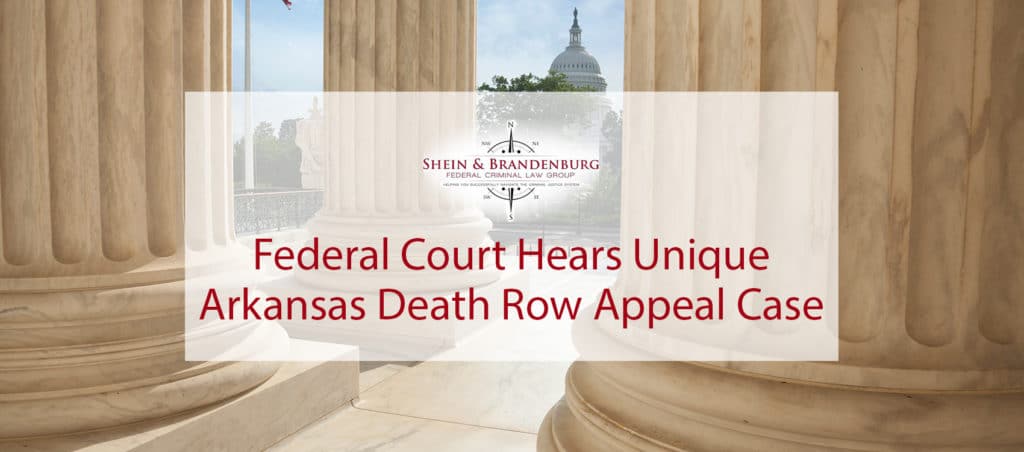The Arkansas Supreme Court justices recently appealed a ruling that allows a judge to move forward with a lawsuit challenging the judge’s disqualification from execution cases after his participation in an anti-death penalty demonstration. The justice was disqualified last year after he was photographed lying down on a cot outside the governor’s mansion during an anti-death penalty rally.
The same day, the justice blocked Arkansas from using a lethal injection drug over claims that the state misled a medical supply company. A federal judge previously dismissed the judge’s lawsuit against the Supreme Court but noted that the lawsuit against individual justices could proceed.
During appeal, legal counsel for the justices argued that the lawsuit creates an unprecedented situation in which a member of the court would have to be deposed and provide documents regarding the disqualification order. The justices also argued that if the lawsuit succeeds, states would be prohibited from reassigning cases if a judge has demonstrated bias.
Direct Appeal Cases
The appeal process changes significantly based on whether the case is initiated in a state or federal court. Death penalty sentences are often automatically appealed to the state’s highest courts, but in some states, this appeal is optional and referred to as a “direct appeal.” These appeals often just include trial issues and are based solely on the court record of a trial. This means that no new evidence or witnesses are involved in these appeals. The appellate court will then review the case to determine if evidence exists that supports the death penalty. A court will then make a determination about whether to uphold the conviction, send the case back to trial court on a specific issue, or reverse the trial court’s decision. If a person loses on direct appeal, he or she can often still petition for appeal to the Supreme Court of the United States.
State Habeas Corpus
If a person is unsuccessful with a direct appeal, he or she is then able to pursue a state habeas corpus claim. On a state level, these challenges often involve a person’s constitutional rights including deprivation of liberty, illegal detention, ineffective assistance of counsel, and sometimes even cases in which a person argues that he or she was innocent.
Federal Habeas Corpus Appeals
If a state habeas corpus petition is denied, a person is still able to file a federal habeas corpus petition, which challenges violations of a defendant’s federal constitutional rights. There is a one-year statute of limitations in the case of these appeals, which is why a person should not hesitate to pursue an appeal in these cases. It is important that a federal habeas corpus appeal is as strong as possible because once the Supreme Court denies one of these petitions, a person exhausts all potential appeals.
Obtain the Services of a Federal Appeal Lawyer Today
If you or a loved one has been convicted of an offense resulting in the death penalty, it is essential to contact a strong federal appeal attorney who can help obtain the best results possible. Contact the Federal Criminal Law Center today to obtain strong legal representation.


